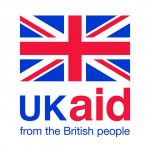A digital identity is increasingly becoming a prerequisite to access a plethora of basic life-enhancing services including healthcare, education, banking and exercising one’s right to vote. Yet, more than one billion people around the world lack any legal form of identification and are arguably ‘invisible’ in many respects. About half of these people live in Sub-Saharan Africa and most are likely to be women and/or forcibly displaced persons.
Our latest research report explores the linkages between access to mobile services and access to formal identification as well as how this impacts the ability of underserved populations to be digitally and financially included. Key insights highlighted in this report include:
Proof of identity is increasingly necessary to access mobile services in one’s own name
While more than 5 billion unique individuals have a mobile subscription, governments in 150 countries require mobile users to present proof of identity when registering for a prepaid SIM card in their own name. Individuals who lack a proof of identity consequently face a higher risk of social, digital and financial exclusion.
Digital identity verification is still nascent in the context of mobile SIM registration
Despite the high number of governments mandating mobile SIM card registration, only 11 per cent of these globally enable mobile network operators (MNOs) to verify customers’ identification credentials against an approved government database to facilitate the accuracy of the validation process. A number of ID authorities in developing markets are now looking to offer identity verification capabilities to selected public and private sector entities.
Millions of undocumented people are still financially excluded but mobile money offers a huge potential to bridge the gap
While mobile money services are available in 90 countries worldwide, an estimated 456 million individuals across these countries (most of them in Africa) may be at risk of financial exclusion due to their inability to meet the identification / Know Your Customer (KYC) requirements for opening mobile money accounts in their own names.
Lack of official identification is disproportionately impacting forcibly displaced populations
173 countries are hosts to 19.9 million refugees. Yet, 75 per cent of these countries legally require people to present an acceptable proof of identity in order to register for a mobile SIM card. Similarly, 81 refugee-hosting countries offer mobile money services which could potentially be available to 54 per cent of all refugees (but for their ability to meet the KYC requirements for opening a mobile money account in their own name).
Privacy frameworks can encourage uptake of digital identity and adoption of identity-linked mobile services
Actual or perceived risks to people’s privacy may adversely affect their willingness to register a SIM card or sign up to identity-linked mobile services in their own names. Only 61 per cent of the countries mandating prepaid SIM registration have a privacy / data protection framework in place[1].
So what does this mean for governments working on their ‘digital transformation’ strategies?
To improve social, political and economic inclusion, as well as engender trust in the digital ecosystem, an enabling policy and regulatory environment is essential. Elements of such an environment may include:
- Enabling all individuals to access formal identification;
- Coordination between Central Government and sectoral regulators to ensure that the identity ecosystem can cater for the respective needs of each sector (financial, telecoms, health etc.) but also the specific needs of various consumer groups – including those marginalised and underserved;
- Ensuring proof of identity requirements when accessing mobile and digital services are:
- clear and as harmonised as possible;
- proportionate to people’s ability to access an acceptable form of identification;
- reflective of the risk of harm in a given context; and
- sufficiently flexible to adapt to market developments.
- Fostering trust in mobile and digital identity ecosystems e.g. by establishing or maintaining privacy and data protection frameworks;
- Maintaining robust identification databases and empowering mobile operators to query these when validating customers’ identification credentials at the point of SIM registration (where this is mandatory);
- Partnering with mobile operators, key stakeholders and the wider identification ecosystem to help drive ID enrolment and access to innovative and interoperable solutions; and
- Encouraging adoption and usage of digital identity-linked services (e.g. by investing in eGovernment and digital social protection portals for beneficiaries).
With just 11 years to meet the 2030 United Nations’ Sustainable Development Goals (SDGs) and in particular SDG 16.9 of providing ‘legal identity for all’, there is a clear need for concerted action; The GSMA’s Digital Identity Programme is committed to supporting dialogue between key stakeholders in an effort to create more enabling environments where the needs of underserved groups are better catered for. This also involves advocating for and exploring various unique roles that MNOs can play in bringing the benefits of digital ID to many of the poorest and hardest-to-reach individuals around the world.
[1] Their actual scope varies from country to country.


